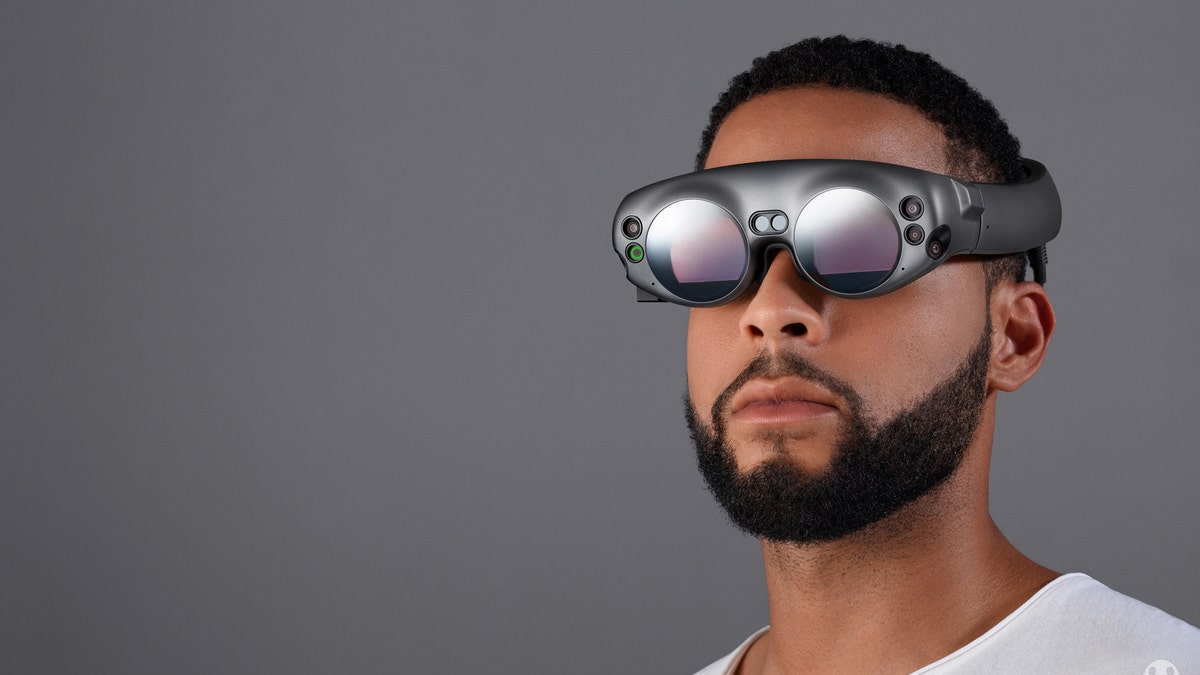
You might think you can’t live without your smartphone, but tech companies like Apple, Google and Facebook expect you to do just that in the not-too-distant future.
The titans of the tech industry are pouring billions into developing the device they think will replace our beloved smartphones — and the race is on to usher in the new age of connectivity.
So what is the device, you ask?
They are glasses capable of sophisticated augmented reality (AR) that will take the screen from your hand and fix it permanently in front of your face.
Sure, Google Glass was a major flop but Microsoft, Apple, Facebook and Google are all working on the new wearable product that, if embraced by consumers, will take us a big step down the path of cyborg consumers.
“They all know the thing after the smartphone is this,” says Australian technologist Mark Pesce.
The US-born technologist, who worked alongside web creator Tim Berners-Lee and created a way of viewing 3D images on the internet, understands the good, the bad, and the ugly ways tech companies shape our lives.
Speaking to the ABC on a recent episode of Conversations with Richard Fidler, he detailed the industry’s pursuit to create the glasses that will soon offer you a “private view of your own reality.”
“We’ve kind of approached a natural limit with how much we can stare down at screens. The next natural place for that screen to live is thoroughly integrated into what we’re seeing so we don’t ever look down at the screen because the world has become the screen,” he said.
“In some sense it’s horrifying.”
This has been a long time coming. Facebook boss Mark Zuckerberg has been talking about it for years. At the company’s annual developers conference last year, the social media giant predicted that glasses will replace smartphones as our go-to everyday gadget of choice as early as 2022.
For a company that is grappling with how to mitigate the spread of disinformation on its platform, this raises some seriously unsettling questions.
“Facebook is going to do what it can to make what you’re seeing through those glasses so alluring that you’re not going to want to take them off,” Mr Pesce said.
The CEO of Microsoft — which has already come to market with its $4,369 HoloLens AR goggles — has spoken about the “infinite possibilities” of augmented reality. Meanwhile Apple CEO Tim Cook has also raved about the potential of AR, saying “I regard it as a big idea, like the smartphone ... I think AR is that big, it’s huge.”
But first the technology, not to mention the fashion, needs to catch up.
A SECRETIVE COMPANY AND ITS BILLIONS
At the heart of the gadget revolution is an extremely secretive company which has its origins in New Zealand.
Magic leap is at the forefront augmented reality technology and has received an eye-watering amount of investment from some of the world’s major tech companies.
While much of the finer details remain shrouded in secrecy, Magic Leap is considered one of the largest venture capitalist funded companies in history. Tech firms Google and Alibaba have invested their money, as have a raft of businesses in other industries including investment bank JP Morgan and entertainment giant Warner Brothers, who are hedging their bets on the future of consumer tech.
Magic Leap has managed to raise about $US2 billion so far and its latest round of funding valued the company at $US4.5 billion, despite not having anything to bring to market — until now.
In the early days, the lack of hard information to emerge from Magic Leap led to all sorts of wild theories about what it was up to but the company has emerged from the shadows in recent years and says its first product will ship in 2018.
However for all the money and research, the first generation device is far from attractive, nor particularly subtle.
Aesthetically speaking, it’s a big upgrade from a leaked photo purported to be from the company posted online in February 2017.
The glasses are connected to a small computer pack which looks like an old Sony discman and also come with a remote controller. (Eventually, we will be able to control these kinds of devices with our brains via a brain-computer-interface (BCI) sensor — at least that’s what companies like Facebook are working on).
In December, the Magic Leap website was updated to say it will ship the product — reported to be surprisingly affordable at about $1500 — later this year and a rare published first-hand account of the goggles featured in Rolling Stone in the same month was pretty gushing from a technology perspective.
It’s still early days but the industry has seriously high hopes for this kind of product.
At a conference earlier this month reclusive Magic Leap CEO, Rony Abovitz, reiterated his belief that his company’s goggles will one day replace “your phones, your televisions, your laptops, your tablets,” he said.
The only question, it seems, is whether Magic Leap or one of the other more well known tech giants will get there first.
This story originally appeared in news.com.au.
